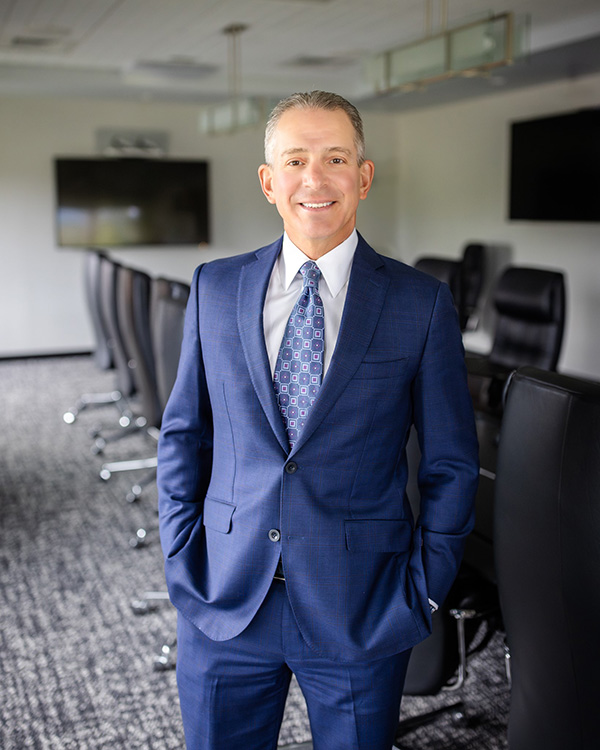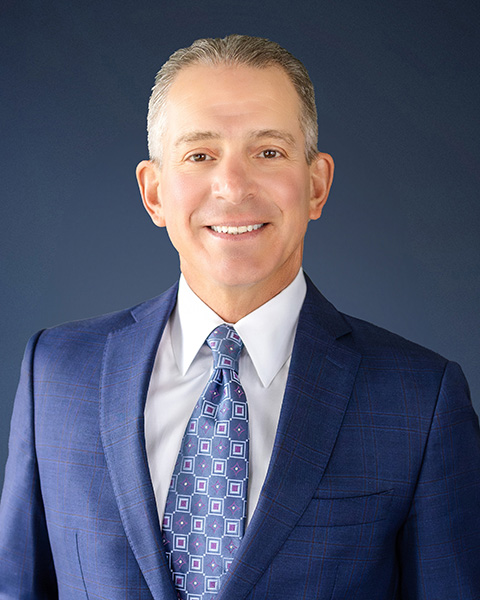
“Playing Chess, Not Checkers”: How Law School Sharpened This CEO’s Strategic Edge
For Rory Ritrievi, the path from commercial lender to bank CEO may have been paved with business acumen, but it was accelerated by law school.
A 1998 graduate of Widener Law Commonwealth, Ritrievi serves as President and CEO of Mid Penn Bank. Looking back, he credits the school’s extended division program not only with expanding his education, but also with giving him an edge that has defined his career.
“When I started at Widener in the fall of 1994, I presumed that it would lead me to the c-suite in the role of chief legal counsel,” Ritrievi said. “As I completed my classwork, however, I realized that in addition to preparing me to actually practice law, the process at Widener was honing my skills in negotiation, presentation, preparedness, planning, situational analysis and even leadership.”
Within a year of his graduation, Ritrievi became a Chief Lending Officer at Commerce Bank in Harrisburg.
“That was not a coincidence,” he said.
Ritrievi had already spent several years building a solid banking career. While working at night to earn an MBA from Penn State, he decided to pursue a law degree. The flexibility of Widener Law Commonwealth’s Extended Division made it possible to attend law school while continuing his career.
But it wasn’t just convenient, it was transformational.
“My former CFO used to say that it appeared that I was playing chess while everyone else was playing checkers,” Ritrievi said. “That is what law school and my time at Widener did for me. It turned me from a skilled checkers player in business and in life to the strategic and visionary chess player that I have become.”
One of his most vivid Widener memories is from a business organizations class. The topic was marginal taxation, and several classmates were having difficulty understanding what the professor was trying to explain.
“I whispered to the person next to me that I thought I might be able to explain it in a different way, and the professor actually heard me,” Ritrievi recalled with a laugh. “So, he asked if I wanted to come up and give it a try.”
Without a lesson plan, but with a clear understanding of the concept, Ritrievi walked to the front of the room and offered a simple, relatable explanation that resonated with the entire class.
“When I finished and asked if it made sense, I got a room full of nods and yeses,” he said. “It was a great moment.”
Those kinds of experiences, he said, gave him more than legal knowledge—they sharpened his ability to think strategically and act with confidence. And those skills translated directly to his leadership at Mid Penn Bank.
“My ability to visualize what outcomes will look like if we strategically plan to get there has differentiated me from my peers,” he said. “Today’s initiatives are the implementation of thoughts I had three years ago. Today’s thoughts are focused on three years from now.”
Under Ritrievi’s leadership, Mid Penn Bank has become a standout in both performance and community engagement. The bank was the country’s top producer of Paycheck Protection Program loans during the pandemic, has completed nine acquisitions in ten years, and runs a charity golf event that’s raised more than $1.2 million for breast cancer research. Its prostate cancer fundraising efforts have raised nearly $1.5 million.
“As the leader of a community bank, community development and support are my main mission in life,” Ritrievi said. “In the loans we make, the charitable events we support, the giving we do—all of those actions strengthen the communities in which we operate. And all of those actions require legal oversight.”
That intersection of law, business, and community, he said, is more important than ever—and his legal education is what allows him to navigate it all with clarity.

“Not everyone who pursues a law degree needs to be a practicing attorney,” Ritrievi said. “I am living proof that it also prepares you to be a valuable member of a business c-suite.”
Ritrievi, who lives by the golden rule and emphasizes giving back through both corporate and personal service, doesn’t hesitate when asked to support Widener Law Commonwealth.
“I value my time at Widener and I attribute a lot of my success to that education,” he said. “Had I not attended Widener, it’s not like I think I would have been a failure in life—but I am confident I would not have had the success I have had. And that success has improved the lives of so many other people.”
So when Widener asks for his help, he shows up. “It would be inappropriate for me to say no. It’s just the way I am.”
